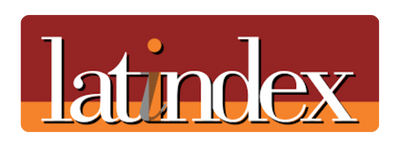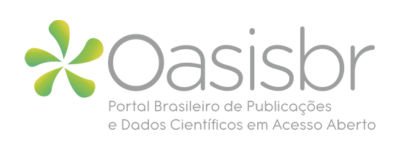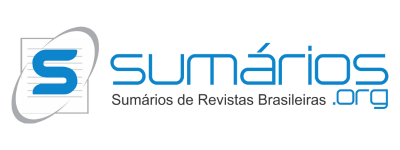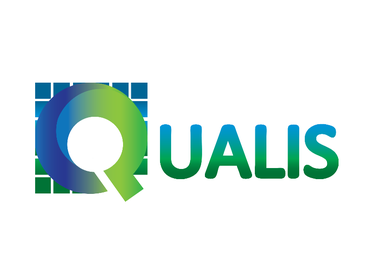School Inclusion and Mathematics
Use of the PhET Simulator as Assistive Technology for Students with ASD
Visualizações: 761DOI:
https://doi.org/10.56579/rei.v6i2.644Keywords:
School Inclusion, Simulators, Assistive Technology, Autism Spectrum DisorderAbstract
The search for strategies and resources that can effectively contribute to the teaching process of students with special educational needs, notably those diagnosed with Autism Spectrum Disorder (ASD), is fundamental to foster inclusive and equitable education. The article aims to explore the potential of the PhET assistive technology simulator in teaching fractions, aiming to enhance the inclusion of students with ASD in the mathematical scenario. The research was conducted at a full-time public school in the city of Sobral - CE. Participants included a science teacher, two students with ASD, and 24 sixth-grade students. The method adopted was action research with a qualitative and descriptive applied nature. Data collection involved application of activities, use of the PhET simulator, and observation. The research results showed a positive response from students to the use of PhET Simulators in performing the proposed activities. Therefore, the findings not only suggest the effectiveness of the PhET simulator but also point to the possibility of its replication in other educational contexts, thus contributing to the advancement of inclusive and technologically assisted practices in mathematics education.
Downloads
References
AMERICAN PSYCHIATRIC ASSOCIATION [APA]. Manual Diagnóstico e Estatístico de Transtornos Mentais (DSM-V). Arlington, VA: American Psychiatric Association, 2013.
BORGES, Tatiane Daby de Fatima Faria et al. Ensino da matemática e aprendizagem da pessoa autista: contribuições da Teoria Instrucional de Robert Gagné. 2020. Disponível em: https://repositorio.ufu.br/bitstream/123456789/30933/1/EnsinoMatem%C3%A1ticaAp rendizagem.pdf. Acesso em: 22 out. 2023.
BRASIL. Política Nacional de Educação Especial na Perspectiva da Educação Inclusiva (2008). Documento elaborado pelo Grupo de Trabalho nomeado pela Portaria Ministerial nº 555, de 5 de junho de 2007, prorrogada pela Portaria nº 948, de 09 de outubro de 2007, entregue ao Ministro da Educação em 07 de janeiro de 2008. Brasília: MEC, 2008.
CÂMARA, Yara Priscila Soares da. ATUAÇÃO DO PROFESSOR DIANTE DO PROCESSO DE INCLUSÃO ESCOLAR COM VISTAS NO AEE. Disponível em: https://downloads.editoracientifica.com.br/articles/220308253.pdf. Acesso em: 22 out. 2023. DOI: https://doi.org/10.37885/220308253
CAMARGOS, Heverton Silva de; DE SOUSA IGREJA, Crisllem Lorrany Viturina. O uso do simulador PhET para o ensino da matemática. DESAFIOS-Revista Interdisciplinar da Universidade Federal do Tocantins, v. 9, n. Especial, p. 4-11. 2022. DOI: https://doi.org/10.20873/uftsupl2022-12770
COSTA, Fernanda Aparecida de Souza Corrêa; ZANATA, Eliana Marques; CAPELLINI, Vera Lúcia Messias Fialho. A educação infantil com foco na inclusão de alunos com TEA. Revista Eletrônica Pesquiseduca, v. 10, n. 21, p. 294-313, 2018. Disponível em: https://periodicos.unisantos.br/pesquiseduca/article/view/592. Acesso em: 08 dez. 2023.
GAIATO, Mayra; TEIXEIRA, Gustavo. O Reizinho Autista: Guia para lidar com comportamentos difíceis. Nversos, 2018.
HEREDERO, Eladio Sebastian. A escola inclusiva e estratégias para fazer frente a ela: as adaptações curriculares. Acta Scientiarum. Education, Maringá, v. 32, n. 02, p. 193-208, dez. 2010. DOI: https://doi.org/10.4025/actascieduc.v32i2.9772
LOPES, Antonio José. O que nossos alunos podem estar deixando de aprender sobre frações, quando tentamos lhes ensinar frações. Boletim de Educação Matemática, v. 21, n. 31, p. 1-22. 2008. Disponível em: https://www.redalyc.org/articulo.oa?id=291221883002 Acesso em: 08 dez. 2023
MAKUCH, Franciele do Belém; MARTINS, Marcio André. O uso do PhET Simulations no ensino de frações. Revista Brasileira de Ensino de Ciência e Tecnologia, v. 11, n. 2. 2018. Disponível em: https://revistas.utfpr.edu.br/rbect/article/view/3753. Acesso em: 08 dez. 2023. DOI: https://doi.org/10.3895/rbect.v11n2.3753
MENDES, Enicéia Gonçalves; VILARONGA, Carla Ariela Rios. Ensino colaborativo como apoio à inclusão escolar: unindo esforços entre educação comum e especial. EdUFSCar, 2023.
OLIVEIRA, Ana Carolina Nogueira; HACK, José Lino; BRETTAS, Luiz Alberto. Reconstruindo frações – o significado através do lúdico. In: CONGRESSO DE INICIAÇÃO CIENTÍFICA, 16., 2007, Pelotas. Anais [...]. Pelotas: Universidade Federal de Pelotas, 2007.
RIGO, Neusete Machado; OLIVEIRA, Morgana Maciel de. Inclusão escolar: efeitos do plano nacional de educação nos planos municipais. Cadernos de Pesquisa, v. 51, p. 1-17. 2021. Disponível em: https://www.scielo.br/j/cp/a/g7gPkWP6pjtgXVqfdx9xhnm/. Acesso em: 08 dez. 2023 DOI: https://doi.org/10.1590/198053147304
SANTOS, Antonio Carlos Godinho dos; CAMESCHI, Carlos Eduardo; HANNA, Elenice S.. Ensino de frações baseado no paradigma de equivalência de estímulos. Revista Brasileira de Análise do Comportamento, [S.l.], v. 5, n. 1, fev. 2012. Disponível em: https://periodicos.ufpa.br/index.php/rebac/article/view/706. Acesso em: 01 dez. 2023 DOI: https://doi.org/10.18542/rebac.v5i1.706
SCAPIN, Larissa Leal et al. Tecnologias assistivas, ensino de frações e surdez: olhares de acadêmicos de um curso de licenciatura em matemática. Revista Prática Docente, v. 4, n. 2, p. 391-410, 2019. Disponível em: https://periodicos.cfs.ifmt.edu.br/periodicos/index.php/rpd/article/view/510. Acesso em: 08 dez. 2023 DOI: https://doi.org/10.23926/RPD.2526-2149.2019.v4.n2.p391-410.id450
SILVA, Américo Junior Nunes da; NERY, Érica Santana Silveira; NOGUEIRA, Cleia Alves. Formação, tecnologia e inclusão: o professor que ensina matemática no “novo normal”. Plurais-Revista Multidisciplinar, v. 5, n. 2, p. 97-118. 2020. Disponível em: https://www.revistas.uneb.br/index.php/plurais/article/view/9375. Acesso em: 01 dez. 2023 DOI: https://doi.org/10.29378/plurais.2447-9373.2020.v5.n2.97-118
SILVEIRA, Núbia Maria Gomes; SANTOS, Laissa Karen Faustino; STASCXAK, Francinalda Machado. Os desafios das crianças com autismo à Educação Inclusiva. Ensino em Perspectivas, v. 2, n. 4, p. 1-12, 2021. Disponível em: 01 dez. 2023https://revistas.uece.br/index.php/ensinoemperspectivas/article/view/6620. Acesso em: 13 dez. 2023.
SOCIEDADE BRASILEIRA DE EDUCAÇÃO MATEMÁTICA. GT13: Diferença, Inclusão e Educação Matemática. 2020. Disponível em: http://www.sbembrasil.org.br/sbembrasil/index.php/grupo-de-trabalho/gt/gt-13. Acesso em: 01 de dez. 2023.
UNIVERSITY OF COLORADO BOULDER. PhET: Interactive Simulations for Science and Math. 2021. Disponível em: https://phet.colorado.edu/. Acesso em: 01 de dez. 2023.
Downloads
Published
How to Cite
Issue
Section
License
Copyright (c) 2024 Interdisciplinary Studies Journal

This work is licensed under a Creative Commons Attribution 4.0 International License.
The Journal of Interdisciplinary Studies adopts the Creative Commons Attribution 4.0 International License (CC BY 4.0), which allows for sharing and adapting the work, including for commercial purposes, provided proper attribution is given and the original publication in this journal is acknowledged.













